On New Edition, Nashville, country's continuing, diversifying R&B crossover influences
New Edition was honored at the National Museum of African American Music April 16 for selling 20 million records worldwide in the group's four-decade mainstream musical career.
As the museum's home, Nashville is at a unique crossroads when it comes to the intersection of race and pop culture.
The city's fortunes changed two decades ago when New Edition's R&B blend of boy band appeal, hip-hop swagger, timeless vocals and massive hit songs redefined the pop industry at the turn of the 1990s.
The group's success led to a similar evolution for country music in the 2010s.
Before acts like Florida Georgia Line and LOCASH — or even the Backstreet Boys and NSYNC, plus every manner of smooth-crooning soul-stirrer from Kane Brown to Morgan Wallen and beyond — New Edition set a standard.
"Whether you're making R&B and rap hits or you're country to the bone, we've all been singing to the ladies for quite some time" jokes LOCASH's Chris Lucas. Along with his collaborator Preston Brust, the duo's Nashville existence post-dates the end of 90s country and R&B, plus births the start of the "bro-country" era.
"New Edition's songs — from their younger era stuff like 'Mr. Telephone Man' to 'Can You Stand The Rain?' when they were older — could all easily cross over as incredible country covers," Lucas adds.
Backstage before their recent opening for Kane Brown at Bridgestone Arena, as they have for the better part of nearly two decades, New Edition's greatest hits served as the soundtrack, hyping them up to take the stage in front of nearly 20,000 people.
As much as New Edition selling-out Bridgestone Arena on April 16 (alongside other four-decade-old throwbacks like Guy and Keith Sweat, plus 90s and 2000s-era soul hitmaker Tank) proved nostalgic. When compared to Nashville at present, it's better served as a lesson worth learning for the modern era's country-to-R&B intersection.
New Edition's decade of R&B-to-pop crossover success
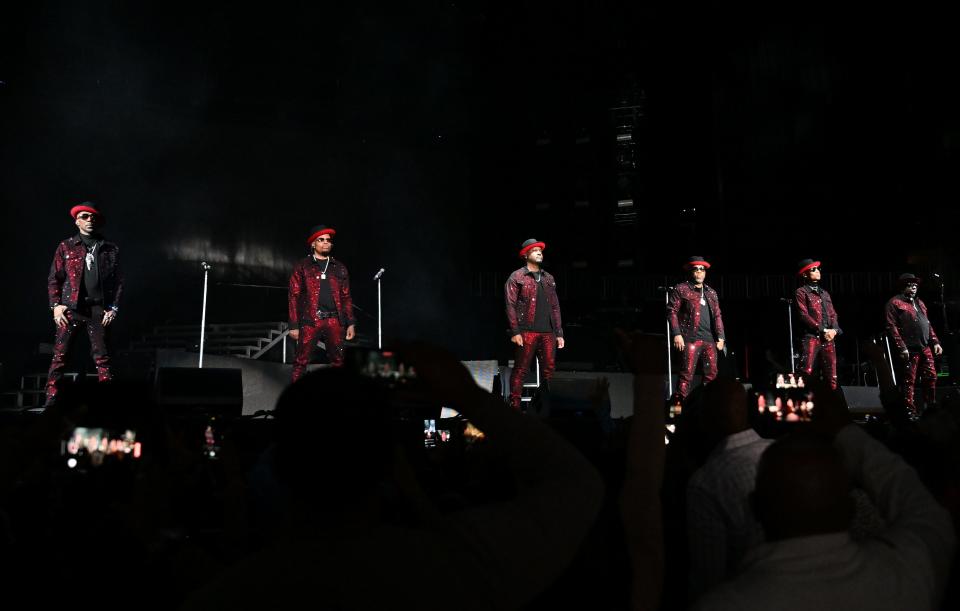
Ten years into their time as a group, New Edition had achieved a crossroads as Black "urban" music crossed over to pop's predominantly white rock mainstream.
Three child-pop No. 1 singles ("Candy Girl," "Cool It Now," and "Mr. Telephone Man") were followed by a fourth album, "Under The Blue Moon," made up of mainly of classic soul covers.
When seated onstage at the NMAAM's Roots Theater on the afternoon of the 16th and queried about their chief interest when headed into the studio to create the record that would become their breakout 1988 album "Heartbreak," Ricky Bell, Michael Bivins, Bobby Brown (who had left the group at that point to pursue solo success), Johnny Gill (who replaced Brown) Ronnie DeVoe and Ralph Tresvant all replied with one word, in unison.
"Girls."
The answer shouldn't be shocking.
The sextet's rise to success occurred during an era where, because of the rise of music videos and race-blind crossover marketing principles, an unprecedented premium was placed on hyper-sensualized Black masculinity.
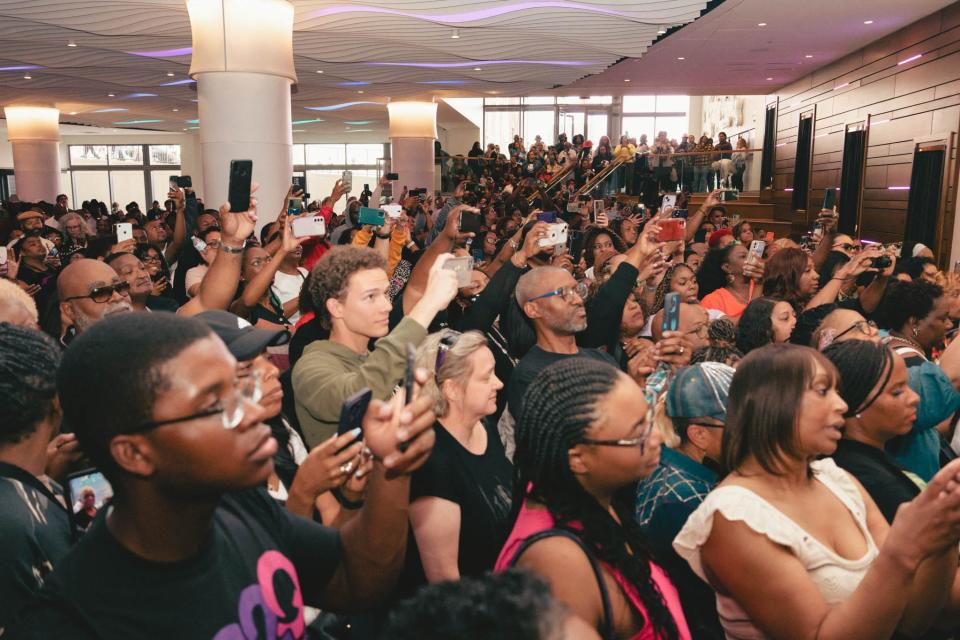
Gone were the days when the rock stars causing hysteria on television only looked like Elvis Presley and Mick Jagger, or even Van Halen's David Lee Roth or hair metal icons like Guns' n Roses' Axl Rose, Jon Bon Jovi or Poison's Bret Michaels.
In 1988, the group of men, now each nearing 60, were between 19-22.
They were a boy band at the cusp of manhood, and their sound and style did not fit with their desires to expand their inspirations.
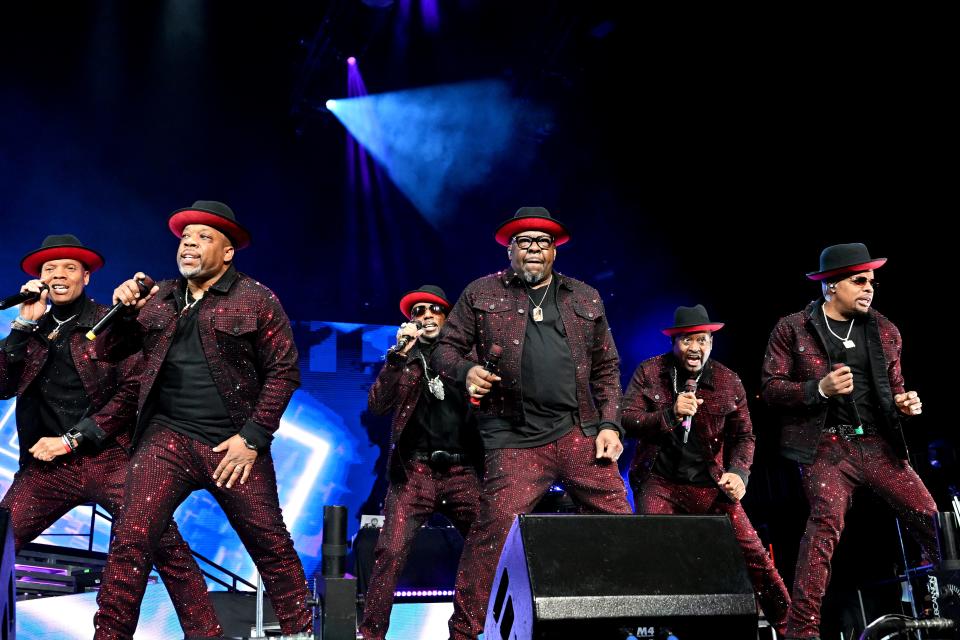
"Yeah, we went through and were deeply inspired by our Jackson 5 and Temptations-eras there for a bit (alluding to the group's inspirations for the first decade of existence), but when we really thought about it, we wanted the girls," joked DeVoe.
Even deeper, the girls, like seemingly everyone in the late 1980s, were obsessed with the same thing that the current era's country and R&B fans are — the intersection of society's mainstream and hip-hop culture.
By 1988, rap music was 15 years old and had achieved multi-platinum album sales, successful major film releases, global tours and increased renown via television programs like MTV's "Yo! MTV Raps." Blend the rise in rap's popularity with young Black men singing soul songs, and the potential for a shift in the genre feels obvious.
"Whether we had a number one record on the chart or not, our fanbase was still showing up to our live events," says Bivins.
The 'Heartbreak' album and legacy-defining appeal
With an enraptured audience missing their favorites (New Edition toured yearly from 1983-1986 but did not tour in 1987), the group needed an album that returned them to live crowds but could also deliver on the charts. It also needed to integrate the group into mainstream Black urban crossover music's evolving conversation.
The band has insisted on maintaining classic soul-era choreography and romantic five-part vocal harmonies mixed with hyper-sexualized rap lyrics and "New Jack Swing"-style beats that mixed a trio of early 80s urban crossover influences from the Midwest — thumping Chicago house, plus grooving Minneapolis and Dayton funk with New York rap's booming drums.
"Heartbreak" didn't just excel at this new style of music.
It expanded it.
Most significantly, Philadelphia's Boyz II Men owe their roots to a management and development deal with Bivins' Motown-distributed Biv 10 Records in 1990.
"Jimmy Jam and Terry Lewis' production gave the group an extra gear in the studio [as singers and songwriters] that we didn't know that we had in us," says Tresvant. "They transitioned us out of the boy band stage into the men you see today."
Jam and Lewis' work, driven by time spent working with Prince in Minneapolis' early '80s Paisley Park Studios scene, evolved the careers of Janet and Michael Jackson, among many.
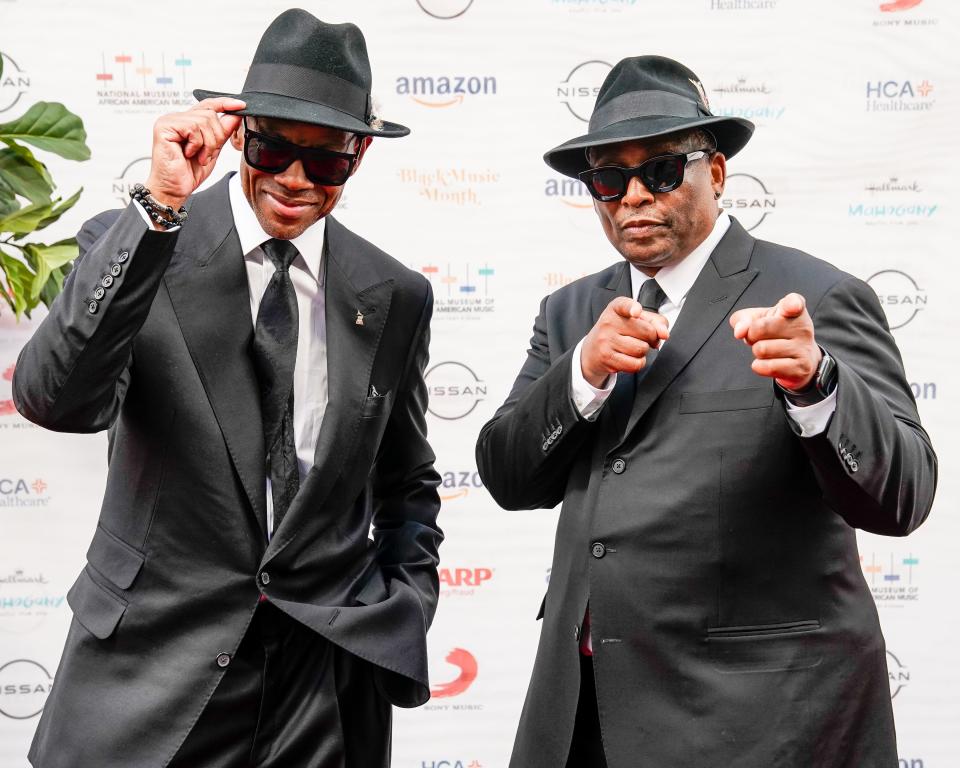
"'Heartbreak" bridged the gap between where New Edition was and where New Edition was going in the future," Jam said to OkayPlayer in 2018. "They got a pivotal record [that defined them] as a group (and) built their next chapter."
The double-platinum selling "Heartbreak" matched the sales of the eponymous album New Edition released five years prior.
Six singles were released from "Heartbreak," unprecedented for the act. They all charted in the top 20 of Billboard's all-genre Hot 100 or R&B charts.
In the case of "If It Isn't Love," whose video features classic R&B style choreography and vocals, the song stood, to that date, alongside 1984's "Cool it Now" as the group's only top 10 single on both the Hot 100 and R&B charts.
"The steps, man. The choreography in that video for that song," exclaims Brust. "Any time you see LOCASH onstage trying to find a little spot in the show to break into that type of entertainment, we always do that, and we wouldn't have that inspiration if it weren't for how popular 'If It Isn't Love' was back then."
If looking for the forefather of how Atlanta's influences of autotuned vocal choruses and trap-ready 808 beats seamlessly integrated into country music's love anthems and drinking songs — spurring almost two decades of enormous success — check out "Heartbreak."
"And they're riding those moped scooters in the video for [album single] 'NE Heartbreak,' too," says Lucas. "We keep joking with Kane [Brown] that we should bring that back. Hell, I know we all have scooters, four-wheelers or something similar. From fashion to music and style, [New Edition] had their fingers on the pulse of things that have remained cool in society forever."
How New Edition inspires Music City's modern male country appeal?
Dig deeper into the sound and style's future and a full-circle moment exists worth examining through 2023's pop-country lens.
"Those beats are the truth," says Lucas. "From LOCASH to Sam Hunt, Morgan [Wallen], all of us owe a debt of gratitude to that era."
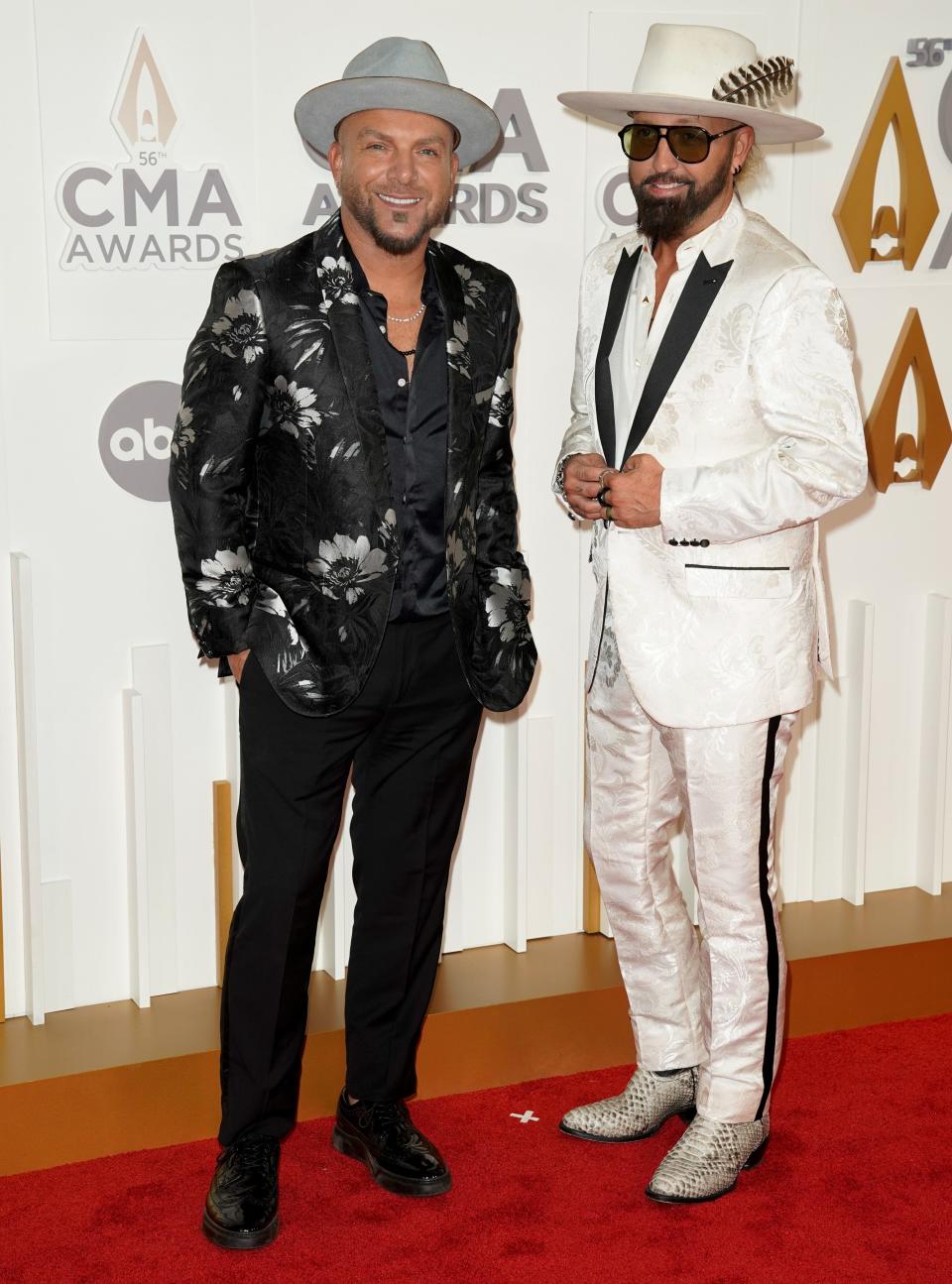
Lucas' LOCASH partner Brust digs even further into the history and analogizes how even without the beats, the interplay between country's male acts and R&B's pop-aimed acts of the 1990s is an ever-constant conversation.
He highlights how All-4-One sang John Michael Montgomery's "I Swear" four months after he released it in 1993, Kevin Sharp covered the Tony Rich Project's Grammy-winning "Nobody Knows" a year after its release in 1995 and country star Mark Wills released a version of Brian McKnight's "Back at One" just two months after the soul crooner released the track in August 1999.
For many reasons, New Edition broke up for a half-decade after "Heartbreak."
Brown remained solo, joined by Gill and Tresvant in that realm.
But Bell, Bivins and DeVoe, as the hip-hop trio Bell Biv DeVoe (BBD), expanded the aesthetic created via "Heartbreak" full-scale.
They called the sound "hip-hop, smoothed out on the R&B tip with a pop appeal to it."
Yes, love songs were still on the menu. However, songs like "Poison" delved into more "gangsta"-style rap vibes and warned of dealings with devious women.
New Edition on the "blessing" of "being a blessing to others"
Three decades later, R&B-inspired country shows the style and sound dialed back from "Poison" and more toward where New Edition existed, teetering on the edge of being intentional with their sensuality in 1987.
Watching others struggle to occupy the space between saying what a more genteel-appearing culture expects and what a wilder society in real time may desire isn't lost on the group.
"We see it all the time," says Gill. "Discovering the inspiration to achieve what we've done is more than wearing the same outfits and attempting the same moves."
Artists like Russell Dickerson sing "She Likes It" while pouring their wives tequila before canoodling on the couch, while Morgan Wallen's rap-sampling "180" highlights the enjoyment of seeing city-slicker women extolling the unexpected virtues of moonlight frolicking under moonlit rural nights.
The next layer for the hip-hop-inspired country could very well mimic the New Edition-to-BBD trajectory.
If this course occurs, its end game is ultimately ideal.
"Three generations of country stars, and America, across the board, have grown up with crossover male R&B artists and male country music superstars being a core part of our DNA," says Brust. "It's taken Nashville a long time to accept that the change that comes with [how those influences fully intersect] is coming, but now that it's arriving, it's not going anywhere anytime soon."
Observing New Edition live at Bridgestone Arena four decades later, their songs encapsulate a wide swath of pop material with note-perfect intentionality reflecting multiple generations of seamless pop-culture crossovers.
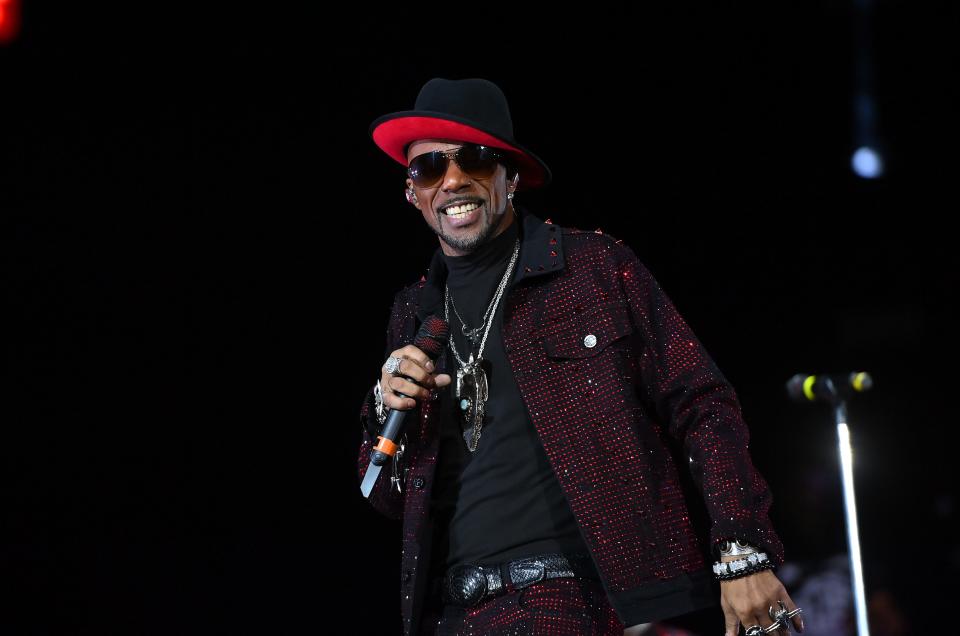
The ebbs and flows from more milquetoast material to hyper-sensual songcraft reflect boys becoming men and then growing into valued and vaunted elder statesmen.
"40 years ago, we couldn't see what was ahead of us," says Gill. "Constantly working hard to elevate an incredible legacy is hard work, but it's worth it."
Brown notes, "We're entertainers first."
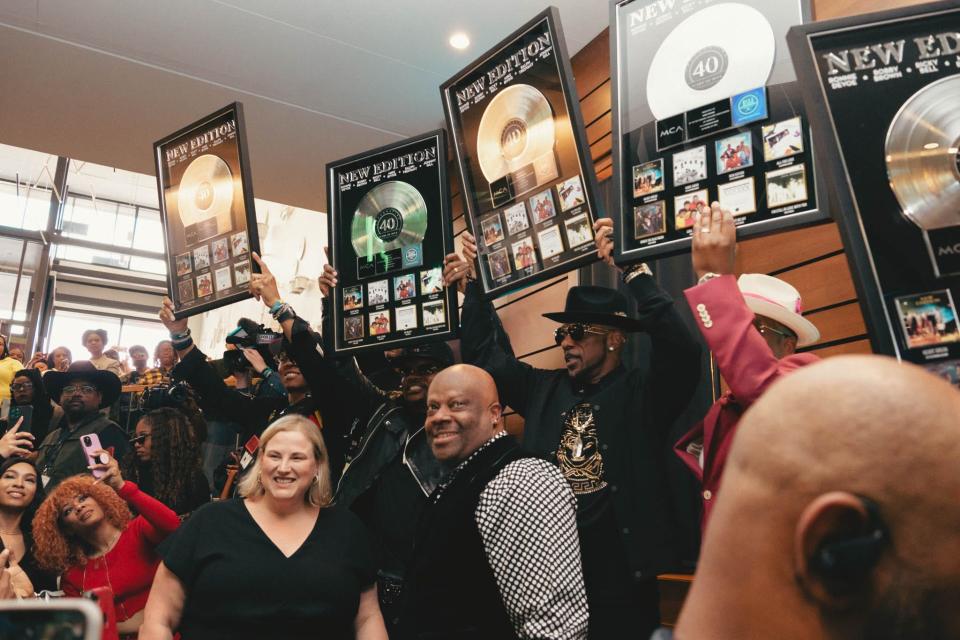
Ronnie DeVoe summarizes the group's enduring appeal and influence succinctly.
"It's a blessing to be a blessing to others."
This article originally appeared on Nashville Tennessean: New Edition continues Nashville, country's diversifying R&B crossover
